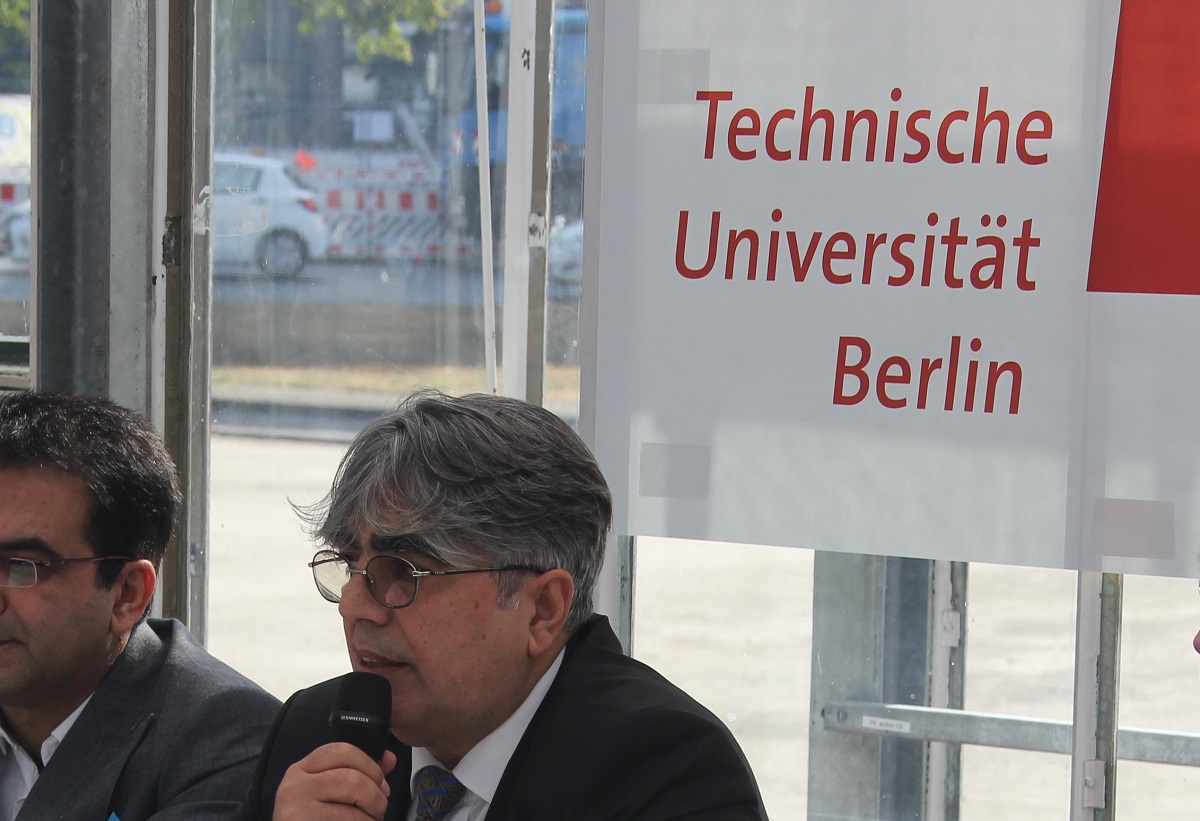Le chiffre d’affaires atteint 9,3 milliards de dollars, soit une hausse de 17 %, par rapport à une production mondiale de véhicules légers en augmentation de 24 %. Un chiffre d’affaires en hausse de 27 % si l’on exclut les écarts de conversion sur devises étrangères et les cessions nettes d’acquisitions Un bénéfice dilué par action et un bénéfice… Continue reading Magna annonce ses résultats du troisième trimestre 2022
Category: News Type
Magna gibt die Ergebnisse für das dritte Quartal 2022 bekannt
Der Umsatz stieg um 17 % auf 9,3 Mrd. USD, verglichen mit einem Anstieg der weltweiten Produktion von Leichtfahrzeugen um 24 % Ohne Berücksichtigung von Währungseffekten und Übernahmen abzüglich Veräußerungen stieg der Umsatz um 27 % Der verwässerte Gewinn pro Aktie und der bereinigte verwässerte Gewinn pro Aktie stiegen auf 1,00 USD bzw. 1,07 USD, verglichen mit 0,04… Continue reading Magna gibt die Ergebnisse für das dritte Quartal 2022 bekannt
Ferrari N.v.: Periodic Report on the Buyback Program
Maranello (Italy), November 21, 2022 – Ferrari N.V. (NYSE/EXM: RACE) (“Ferrari” or the “Company”) informs that the Company has purchased, under the Euro 150 million share buyback program announced on June 30, 2022, as the initial tranche of the multi-year share buyback program of approximately Euro 2 billion expected to be executed by 2026 in… Continue reading Ferrari N.v.: Periodic Report on the Buyback Program
Autonomous vehicle for the Berlin test track
from David Fluhr November 22, 2022 Sahin Albayrak – Head of Dai Laboratory An autonomous vehicle from Schaeffler is used by the DAI laboratory on the Berlin test track. In 2019, the test site was opened in the center of the capital. The test area runs from the Brandenburg Gate via the Victory Column to… Continue reading Autonomous vehicle for the Berlin test track
NOVELIS PRESENTS ROADMAP FOR THE SUSTAINABLE USE OF ALUMINUM IN AUTOMOBILES AT AUTOMOTIVE CIRCLE’S FIRST-EVER SUSTAINABILITY IN AUTOMOBILE PRODUCTION CONFERENCE
EVENT SCHEDULED FOR NOVEMBER 29-30 IN BAD NAUHEIM, GERMANY ATLANTA, Nov. 22, 2022 /PRNewswire/ — Novelis Inc., a leading sustainable aluminum solutions provider and the world leader in aluminum rolling and recycling, will be a key participant at Automotive Circle’s first-ever Sustainability in Automobile Production conference later this month. Committed to driving change to ensure a… Continue reading NOVELIS PRESENTS ROADMAP FOR THE SUSTAINABLE USE OF ALUMINUM IN AUTOMOBILES AT AUTOMOTIVE CIRCLE’S FIRST-EVER SUSTAINABILITY IN AUTOMOBILE PRODUCTION CONFERENCE
WAVE BL Achieves Unprecedented Growth in Q3 of 2022
The company reached the milestone of 100,000 issued and processed electronic Bills of Lading PHILADELPHIA, Nov. 22, 2022 /PRNewswire/ — WAVE BL, the market leader in blockchain-powered trade that enables fast, encrypted, and authenticated transfer of trade documents reached unprecedented growth in Q3 of 2022 WAVE BL has seen over 12% quarter over quarter growth this year and has… Continue reading WAVE BL Achieves Unprecedented Growth in Q3 of 2022
Vantage and NEOM McLaren Extreme E make a splash for ESG at the Finance Magnates London Summit 2022
LONDON, Nov. 22, 2022 /PRNewswire/ — International multi-asset broker, Vantage (also known as “Vantage Markets”), is pleased to announce its participation and sponsorship of the Finance Magnates London Summit for the second year running, with a renewed push for ESG. This year, Vantage was accompanied by their partner NEOM McLaren Extreme E to exhibit the… Continue reading Vantage and NEOM McLaren Extreme E make a splash for ESG at the Finance Magnates London Summit 2022
Port Equipment Market to reach US$ 18.1 Bn by 2031: TMR Study
Expansion of old ports and construction of new ones are anticipated to present profitable prospects for market participants Rise in the number of distribution centers and warehouses is estimated to spur demand for terminal tractors in the global Port Equipment Market WILMINGTON, Del., Nov. 22, 2022 /PRNewswire/ — In 2021, the value of Global Port… Continue reading Port Equipment Market to reach US$ 18.1 Bn by 2031: TMR Study
Insights on the Global Drone Logistics Market Growth, Size & Share 2022 – 2028 | Estimated to Achieve a Revenue of $53 Billion With Growing at a CAGR 20.75% – Industry Trends, Demand, Value, Analysis & Forecast Report by ZMR
NEW YORK, Nov. 22, 2022 /PRNewswire/ — As per Zion Market Research study, The global drone logistics market size was worth around USD 8.25 billion in 2021 and is predicted to grow to around USD 53 billion by 2028 with a compound annual growth rate (CAGR) of roughly 20.75% between 2022 and 2028. Drone Logistics… Continue reading Insights on the Global Drone Logistics Market Growth, Size & Share 2022 – 2028 | Estimated to Achieve a Revenue of $53 Billion With Growing at a CAGR 20.75% – Industry Trends, Demand, Value, Analysis & Forecast Report by ZMR
Three-wheeler Vehicle Market Size Projected to reach US$ 14.7 Billion by 2031, Says Transparency Market Research, Inc.
Emerging trend of modifying three-wheelers into electric-operated vehicles has opened new doors of opportunities for the three-wheeler vehicle market Prospects of new revenue potential for automobile manufacturers due to the increasing demand for three-wheeler tempos for moving commodities to strengthen growth of the three-wheeler vehicle market WILMINGTON, Del., Nov. 22, 2022 /PRNewswire/ — In 2020,… Continue reading Three-wheeler Vehicle Market Size Projected to reach US$ 14.7 Billion by 2031, Says Transparency Market Research, Inc.



